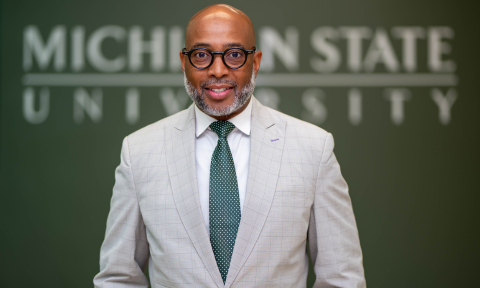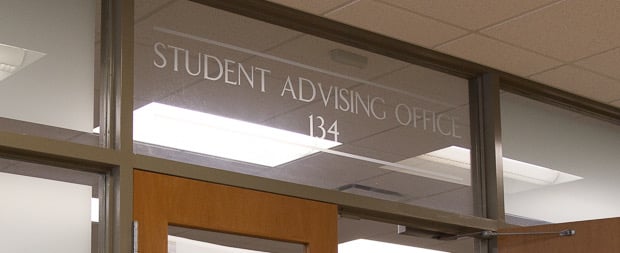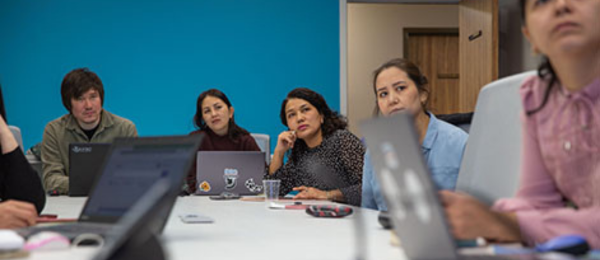Sharing Short-Term Progress and Long-Term Aspirations Related to Incorporating Agricultural Research in K-12 Classrooms
Almost constantly, the local and regional food systems that we rely on to keep us well-fed and healthy face the threat of severe shocks. Further, when many interruptions “occur simultaneously and without warning,” they risk hunger, malnutrition, and economic harm to every actor in the supply chain, including consumers, producers, processors, distributors, and retailers (Rudolph, 2023). Recognizing this challenge, a multidisciplinary team came together to propose a “five-year integrated project” to study how food systems can be built “to withstand several shocks happening concurrently,” to use “artificial intelligence and decision-support tools” to “model multiple shocks,” and to “train a new generation of...scholars and practitioners” to implement insights from this research (Rudolph, 2023). In 2023, these experts, led by Dr. Brent Ross, associate professor in the MSU Department of Agricultural, Food and Resource Economics and associate chairperson for undergraduate programs in the MSU College of Agriculture and Natural Resources, received a $10 million grant from the U.S. Department of Agriculture (USDA) to achieve these goals and help advance the United States’ food security (April 2023 Emerging Research).
One unique aspect of this project, compared to most academic research, is its commitment to ensuring that findings have a direct, positive, and visible impact on communities across Michigan, the Midwest, and the United States writ large. In pursuit of this goal, the researchers involved in this work from Michigan State University, Indiana University, Purdue University, North Carolina Agricultural and Technical State University, the University of Illinois at Urbana-Champaign, the Global Food and Ag Network, Mavin Global, and the USDA have already shared some takeaways in “papers, in-person and virtual presentations, policy briefs, stakeholder meetings, social media, newsletters and online extension materials” (MSU COE). More distinctively, they have committed to ambitiously connecting grant-related conclusions to what is taught in K-12 and post-secondary classrooms. Guiding this work, which includes developing research-informed K-12 classroom modules, piloting them, crafting resources to support teachers’ use of them, and evaluating their effectiveness, has been Mavin Global, the Michigan Association of Secondary School Principals (MASSP), and the Office of K-12 Outreach.
Centrally, this planned engagement of K-12 students and educators is designed to increase these individuals’ knowledge of the U.S. food supply chain concerning STEM education standards and to boost young people’s interest in agricultural careers as a means of bolstering the pipeline for the STEM workforce tied to agri-food systems. This spring, the project team advanced this work with the piloting of a virtual, AI-assisted agricultural career fair. Over two days, 258 students at Northview High School participated in this event, watching videos from employees and employers connected to agriculture and this USDA-funded research, completing AI-generated prompts related to the positions that they learned about, developing a talent profile to support their attainment of related careers, practicing verbal responses to interview-like questions about the jobs they were intrigued by, and connecting their ongoing academic work to one of these prospective careers. Leveraging cutting-edge technology, the platform supporting this virtual career fair further incorporated AI to provide educators with real-time data and feedback on their students’ progress and quality of work. With that, AI built into the event platform curated student interests to help teachers provide their classes with career counseling and recommendations for future areas of study following these two days of exposure to new opportunities.
After the piloting of this grant component, its subproject leader, an administrator with Northview Public Schools, interviewed students, educators, and administrators to assess the extent to which this effort boosted participants’ understanding of and interest in agricultural careers. Various respondents said they enjoyed the experience, found it informative, and would like more opportunities like it. For instance:
- Dr. Rebecca Moore, Curriculum Director for Northview Public Schools, commented that Northview’s students “benefited so much from having access to quality, engaging content that could be completed at home” and that gave them “an in-depth look into how our local food supply chain works, its essential functions, and careers connected to this work.”
- Dr. Christina Hinds, Superintendent for Northview Public Schools, added that the virtual agricultural career fair supported “the district's core mission of career awareness and preparedness” while “foster[ing] authentic critical thinking and communication skills in students through activities like video production.”
- Andrew Otten, a Math on MainStreet teacher and virtual career fair facilitator, explained that students “were able to see careers they had never considered before...right in [their] own community” and that the initiative “allowed for good conversation in class about what careers are out there and the common things that ALL careers require like communication skills, collaboration with others, and being productive within your business or job.”
- A 10th-grade student who participated in the experience noted that they left it “more aware of the types of jobs and education opportunities in [the] community that relate to careers in the Food Supply Chain” and suggested “that these virtual career fairs should be much more frequent throughout high school, as this one significantly broadened [their] view of jobs in this industry.”
Given this positive feedback, the project sub-team focused on disseminating grant-identified research findings in K-12 classrooms, including the Office of K-12 Outreach, is excited to refine this virtual career fair, incorporate added project conclusions related to food shocks and agricultural systems, and share it with more school districts. With that, the team will continue to design a collection of modules based on the work of researchers connected to this USDA grant that educators can deliver to their students to help them learn more about the food systems they rely on and advance pupils’ interest in essential STEM careers related to agriculture. Through these ventures and related efforts involving higher education institutions and extension programs, the grant team is working to ensure that, instead of being confined to dusty journals buried in library shelves, their insights about food shocks tangibly benefit folks across all parts of the agricultural supply chain and U.S. communities. Readers interested in learning more about this USDA-funded work and its implications for K-12 schools are invited to review past coverage of the project in publications from the MSU College of Education and the College of Agriculture & Natural Resources. They can also connect with Dr. Brent Ross at rross@msu.edu.




